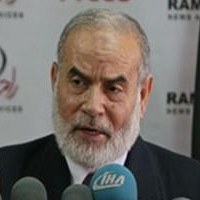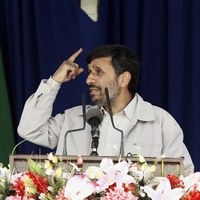![]()
Fri, Aug 05, 2011 | Rubin Reports | By Barry Rubin
A Lebanese Town’s Dilemma Teaches about Islam, Freedom, and the Future of Europe
I’m fascinated by little stories reflecting the big picture.
So consider the south Lebanese town of Hula, about which MEMRI provides a Lebanese television report. Hizballah militants arrived in the village — after hitting other places — to stop the sale of alcohol.
They surrounded the house of Wasef Hussein, the local liquor seller, and demanded he stop. The Lebanese army eventually arrived and got them to leave.
Hussein’s response is interesting:
“This [action] contradicts the ideological and religious concepts of Hizballah. We respect their feelings. We have never prevented anybody from praying, we have never told a woman not to wear a hijab, and so on.…
“We will not give up our general and personal liberties — not just in Hula, but in all Lebanese villages. These liberties are sacred.” As for the women, people in the town don’t want someone to “come and force them to cover their hair.” Hizballah says, “There [will] be a new era in Hula. That era must never come.”
The reporter concludes, “Alcohol supporters will not cease to raise their drinks in a toast. This is a part of their culture. Nor will those opposed to alcohol cease their efforts to prevent it. This, too, is a part of their culture….”
Hussein sounds like a citizen in a Western democratic country. At the same time, he issues a veiled political warning to Hizballah. That group claims it doesn’t want to establish an Islamist state in Lebanon. I don’t believe it and neither do many Lebanese. (As usual, many Western reporters and “experts” are on the other side.)
But Hussein’s not being naïve. He’s reminding Hizballah that if it pushes too hard on that issue most Sunni Muslim Lebanese, Druze, and Christians will fight them much harder.
Why is this so important to understand?
Unless subject to compulsion, those who are Muslims decide their lifestyle and identity. Not everything is about religion. They have other sources of identity — ethnicity, tribe, region, political views. They still consider themselves Muslims even if they drink alcohol or if women aren’t covered over with cloth.
Just because something exists in a sacred text doesn’t mean that’s what people will do. And that’s precisely why Islamists want to force everyone to be Muslims according to their definition which does — make no mistake — coincide far better with the holy texts.
In a parallel way, there is nothing in the original Christian holy text to mandate the political system and set of social customs that endured for more than 1500 years under the banner of Christianity. Ultimately, texts don’t rule, people do; and when texts do rule they do so only through decisions made by people.
But when precepts are enforced by force they dominate society. If an Islamist government comes to power, its leaders must implement their particular “fundamentalist” style of Islam since otherwise that makes them, by their own definition, “bad Muslims.” An Islamist government has to force veiling, stop alcohol sales, punish those who want to convert to other religions, and all the other things that grow out of their reading of the texts.
In a Muslim majority society allowing different interpretations of Islam — like Iran under the shah, Jordan under the king, or Egypt under Husni Mubarak — the problems are reduced, albeit still there. But progress, though tough, is conceivable. Women’s rights were advancing slowly before Islamist power began growing.
In contrast, if a dictatorship kills, maims, and forces its subjects to adhere to the letter-of-the-text Islam, things get very nasty indeed. Western observers blather on about how Islamists can become democratic, but Islamists in power are bound by totalitarian principles in the way that Muslims who rule Morocco, Tunisia, and Jordan aren’t and the old regimes in Egypt, Turkey, and Iran weren’t.
True, where the government isn’t Islamist, Islamist vigilantes operate. The key question is whether the government protects its citizens and the extent of danger. A determining factor is whether the government itself is intimidated or feels it can gain political profit by appeasing Islamists.
Western societies have a different problem. Muslims that want to assimilate to some degree can succeed and escape repression by moving out of neighborhoods that may have become Islamist mini-states. What governments must do is simply enforce their own laws and traditions, not empower Islamists (even those pretending to be moderates), and protect Muslims who don’t want to live as the Islamists tell them.
Ever hear of Samira Munir? Of course not. She was a Norwegian politician of Pakistani origin who fought for women’s rights and supported a ban on the hijab in Norway’s schools. She was found dead in November 2004. Various official sources tried to suggest it was suicide. I think it was most likely murder and one can call that an act of terrorism. She received daily death threats by phone and walking down the street. Might it be an act of terrorism linked to Norwegian government and establishment willingness to excuse acts of terrorism elsewhere?
Here is a touching and very astute tribute to her and to other slain moderates on a reformist Muslim site.
Thus, a tough line against honor killings, refusal to enforce Sharia in the public sphere, and a battle against Islamists taking leadership in the Muslim communities isn’t “Islamophobic,” it is supporting the rights of actual Muslim citizens to live without intimidation. One moderate Muslim has called the refusal to do so “anti-integration.”
In the Middle East, the best policy is to ally with people of Muslim religion who despise Islamist rule, like the oppositions in Turkey, Iran, and Lebanon; real democratic forces in Egypt and Syria; and Christian minorities who don’t want to be wiped out. Otherwise, nationalist dictatorships — some of which are friendly to the West; most of which had become cautious — will be replaced by Islamist dictatorships — all of which are hostile to the West, eager for sponsoring terrorism and starting wars.
This battle isn’t against “Muslims.” It is against radical Muslims? Are all Muslims radical Islamists? Ask those who are their victims and hate them. If one-third of Egyptians seem ready to vote for Islamism, a majority don’t want an Islamist state. They may get one anyway because the Islamists are better-organized, often better-financed, more ruthless, and even often seem to enjoy more Western sympathy.
The task, then, is to ensure Muslim citizens in Western democracies — like Samira Munir and those murdered by their own families — can have their own “Hulas” so that generations of Hizballahs aren’t raised. And it is also to prevent a Middle East ruled by the likes of the Taliban, Hamas, Hizballah, Iran, and the Muslim Brotherhood that will wage war and terrorism against the West after they finish waging war on their own people.



 RSS
RSS











A Lebanese Town’s Dilemma Teaches about #Islam, Freedom, and the Future of Europe | #Norway #Lebanon #Hizballah http://bit.ly/rrzBsm
A Lebanese Town’s Dilemma Teaches about #Islam, Freedom, and the Future of Europe | #Norway #Lebanon #Hizballah http://bit.ly/rrzBsm